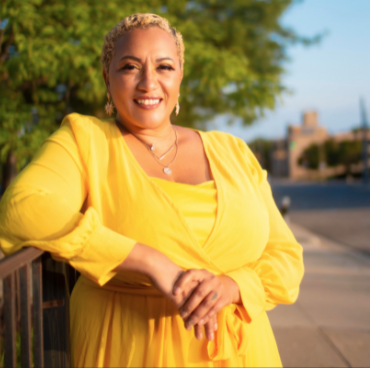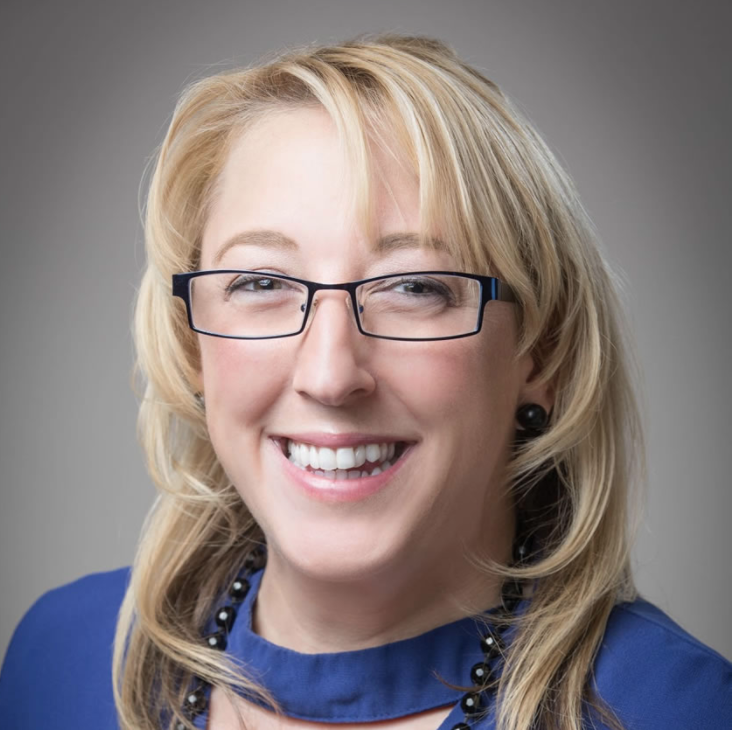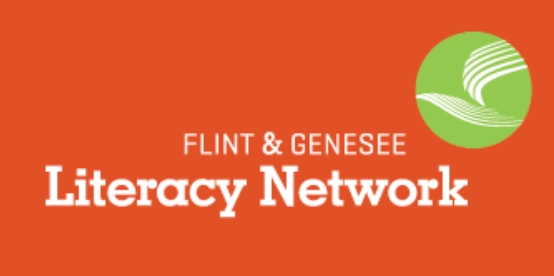Angela Hood- Beaugard, Executive Director and Jessica Kitchner, Operations Manager at Flint & Genesee County Literacy Network shared their experience building capacity across a network using Family-Centered Coaching.

“The Family-Centered Community of Practice (FCC CoP) supports providers who want to hone skills and build capacity. The FCC training was an emotional and social support for participants and has helped us establish a foundation by developing a standard, tools, and skill sets. I heard from participants of FCC training that they really appreciated being able to build relationships in smaller groups and found great value in getting to know people that they’ve seen in community, in different spaces, and they enjoyed working intimately as a team and producing a work product together.”

“FCC has been very natural for us to adopt; all of our work is created and rooted in collective impact. Everything we approach, not just Family-Centered Coaching, is with this idea of aligning and bringing the community together with shared measurement, shared agendas, and shared communications. We work with adults and we work with children using 2Gen approaches around literacy, but what is most important is how we work with people”
Flint Genesee Literacy Network (FGLN) supports others organizations working to increase literacy in the tight-knit community of Flint and Genesee counties. Their role as a backbone organization is to offer technical assistance and promote peer-to-peer learning so that their partners can provide the best service possible to the community.
Angela: “FCC is about supporting coaches with the tools so parents feel heard. Because when they’re feeling heard and respected, they’re more likely to engage. When children and parents are engaged, we know children have better outcomes.”
“Our whole mission and approach is building capacity. When we think about how we can be greater and do more, we know it’s by strengthening the work of coaches. Whether you call it a case manager or an intake worker, we really felt if we could strengthen providers, then we can strengthen communities.”
GST Michigan Works is one of FGLN’s community partners who adopted Family-Centered Coaching beginning in 2019. Staff who completed the Anatomy of Coaching Mindset and Toolkit Onboarding sessions reported an increase in their capacity, skills, and ability to apply the toolkit, including:
- Experienced increased confidence in their ability to use Family-Centered Coaching skills and tools
- Applied more tools and skills with program participants, especially the coaching skills of Reflective Listening, Asking Permission, Asking Powerful Questions, and Checking In.
- Were able to derive more relevant support from peers and supervisors
FGLN also reported that, through their own training experience, there was greater communication and collaboration across leadership.
Angela: “FCC lives in relationships, and on a personal level, it lives in our relationships at home. After FCC Mindsets trainings, we psychoanalyzed all of our working relationships. Especially moving from the ‘fixing mindset’ to the ‘coaching mindset’.”
“Can you imagine a world where our culture really listened to families? Where families seeking support weren’t treated as though they were lacking? What if we put them in the center of all of their goal shaping and then we worked across sectors of industry to support families? How would our culture look? I see Family-Centered Coaching as a hub for coaches to come together, to find this peer support and to find a place for sharing. In that space, we can build momentum to introduce other industries to be part of this shift.”
Steps for building capacity in your organization:
- Make space for reflection and reviewing beliefs: This can happen through continued FCC training, in your community of practice, and should be built into the way your organization functions.
“If we don’t review our beliefs in how we’re interacting with families, then we will never give them the type of service that they deserve. FCC dealt with enough internal mechanisms and practical tools to be able to standardize a level of servicing care. You have to be a person that’s willing and open, in order to bring our best selves into a space. If you’re not good, you can’t be good for anybody else. So you’ve got to take care of whatever’s going on internally first so that you can be the best representative for the families.”
- Cultivate brave spaces: Transformational work, the work that FGLN and other organizations are working to implement, requires cultivating a culture and an environment for employees to share, reflect, challenge and show up ready to grow as a person. FGLN practices cultivating a safe and brave space for employees so that employees can truly focus on delivering the best care to their clients.
“We create safe spaces, that is our superpower. We create a place for people to say, ‘I am struggling with this,’ and we use a professional learning community (CoP) to convene the table and facilitate a space so that solutions can emerge, and sometimes it’s just listening.”
- Switch from driving to leading: Leadership has to come to the table ready to listen and center the needs of the community before choosing a path of action for change to be implemented successfully.
“We’ve got to default to community priorities versus personal agenda. There are people who walk into the space with a clear agenda, they’re driving from the beginning. While you need leadership you also need all voices to emerge, you need the community to be setting the direction.”
- Recognize times of trauma: From leaders, to practitioners, to board members, centering the family as the focus will build more trust and greater more sustainable, lasting care.
“If the family is first and the family is in crisis, it is inhumane for me as a practitioner to step into a space and then impose what I think needs to be the priority on the person. We’ve had to really communicate and find ways to pivot, being respectful to the challenges where families are experiencing crises like, there’s loved ones that have died, like there’s jobs that have been lost. Recognizing tragedy and trauma there. We need to honor that space and be mindful and respectful of that as we support families and continue to move forward.”
- Expect that trust takes time to cultivate: Recognize that the process of building trust takes time and commitment to your community.
“You have to build trust and a rapport, where people can show up as their authentic self and really uncover what their challenges are and what their strengths are. We work in a very small and intimate city and we always say ‘progress moves at the speed of trust.’ There is a lot of trust building that has to occur community wide. What we are trying to create is a table where everybody is welcome, that is inclusive and safe.”
- Use a collective voice to establish common measurements: Identifying goals and measurements as a collective will inspire contribution and motivation.
community-of-practice-agenda_“We do a lot of brainstorming and a lot of collaborative work, surveys, and voting to establish priorities. One of the things we’ve been struggling with with our 2Gen group is really identifying measures. We have people that are measuring different things, but in order for us to really show progress, we would like to lift a couple common measurements.”
The Prosperity Agenda provides these resources as the designated national administrator of Family-Centered Coaching.

